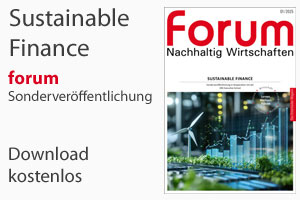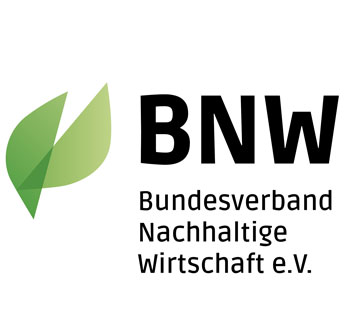COP29: Shifting from compensation to investments
First chronicle on COP29 from Bertand Piccard, founder of Solar Impulse Foundation
COP29 is poised to redefine climate finance, shifting the focus from compensation to transformative investments. With innovative solutions offering both economic profitability and environmental benefits, this conference aims to position climate action as the investment opportunity of the century.
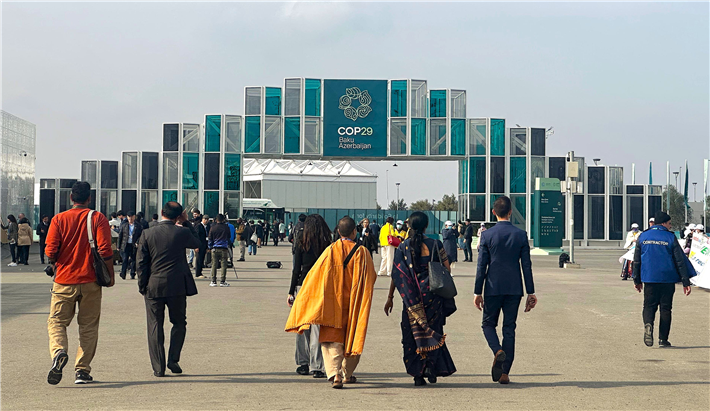 This year, Azerbaijan has been selected as the Presidency of the 29th Conference of the Parties (COP29), to be hosted in Baku this November. © Solar Impulse Foundation
This year, Azerbaijan has been selected as the Presidency of the 29th Conference of the Parties (COP29), to be hosted in Baku this November. © Solar Impulse FoundationThis COP29, like the others, is decried even before it begins. It is being described as a transitional conference of little importance, compared to the one next year in Brazil. But in fact, it is addressing the burning issue of climate finance, a big factor which needs to be redefined and mobilised. To start, we need to exceed the annual threshold of 100 billion dollars promised for years by the countries of the North to those of the South, a form of compensation to help fund the fight against a phenomenon to which Global South countries have contributed very little.
As the delegations arrived in Baku, the adoption of the agenda was already stumbling over this issue. Notably, ‘donor’ countries want to include China and the United Arab Emirates among the nations that must contribute to this fund rather than benefit from it.
Realistically, this debate should no longer be considered relevant. A few years ago, climate finance might have been seen as a form of charity, but not anymore. That's the message we need to hammer home. Climate action is no longer a low or high cost: with solutions that are both clean and profitable, it has become the investment opportunity of the century.
In most countries, renewable energy has become cheaper than fossil fuels and energy inefficiency costs a fortune every year. Not to mention the potential of the circular economy.
„Talking about energy transition in a place where fossil fuels reign, can have a positive effect, inspiring even resource-dependent nations to take steps toward sustainability."
Bertrand Piccard
Let’s think about this: reusing wastewater to heat buildings, transforming waste into building materials, using the heat from data centres to heat cities, optimising water and energy management using artificial intelligence, or simply massively deploying renewable energy capacity to replace the use of fossil fuels, particularly in the countries of the South, which are mainly importers and which could thus free up resources for their local economies.
With projections exceeding 1.5°C by 2030, and six of the nine global limits exceeded - including deforestation, biodiversity loss and freshwater depletion, amongst others - we know that the cost of inaction would be still much higher. From this point of view too, we need to talk about climate action as an investment rather than a cost. Will this be enough to unite all ideologies and even convince the new tenant of the White House? In any case, the language of finance will certainly speak to him more than that of protecting nature.
The best way to prevent these conferences, and climate action in general, from being the scene of empty promises is to position this agenda as a lucrative one, since the solutions that do exist tick the double box of economic profitability and environmental well-being.
Moving away from the narrow logic of economic compensation would also make it possible, through the monitoring that accompanies any investment, to avoid financial flows from rich countries missing their targets and ending up maintaining obsolete and polluting infrastructures. This is a subject that is rarely raised publicly while still keeps being part of many discussions behind closed doors.
„The real obstacle is not the absence of solutions, but inaction - a choice that we have the power to transform, collectively, at the COP and elsewhere."
Bertrand Piccard
Even in an ‘advanced’ country like Switzerland, one wonders why colossal investments would go to widening highways rather than developing renewable capacities. On the eve of a local vote scheduled for this November, however, a universal dilemma is emerging: should we maintain old infrastructures or rethink our systems for a sustainable future; transform our habits or perpetuate the status quo?
Let's take advantage of all the solutions at hand to change the way we produce and consume. The real obstacle is not the absence of solutions, but inaction - a choice that we have the power to transform, collectively, at the COP and elsewhere.
Despite the criticism levelled at the host country of this COP, I still believe that talking about energy transition in a place where fossil fuels reign can have a positive effect. If Azerbaijan were to follow, albeit timidly, in the footsteps of the United Arab Emirates, which has invested hundreds of billions of euros in renewable energies, this summit could mark a turning point in the country's transition and provide international inspiration.
About the Solar Impulse Foundation and Bertrand Piccard
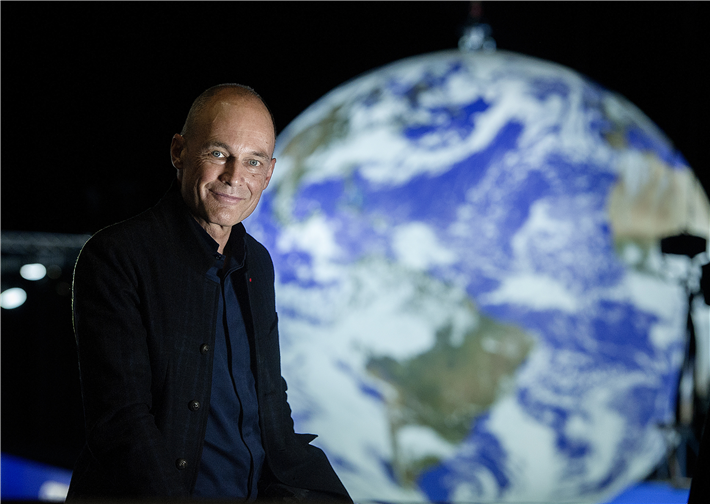 Bertrand Piccard © Solar Impulse Foundation
Bertrand Piccard © Solar Impulse FoundationBertrand dedicates his life to demonstrate the opportunities lying in sustainable development and to raise interest in profitable solutions to protect the environment. He is a pioneer of new ways of thinking that reconcile ecology and economy, and uses his exploration feats to motivate governments and industries to take action. Bertrand has always advocated that solving climate change - rather than an expensive problem - is a fantastic market opportunity. He actively speaks out against the absurdity of the outdated and polluting devices and systems we are still using and promotes the benefits of existing efficient technologies to motivate governments and industries to take action.
Kontakt: Solar Impulse Foundation, Daniela Diego | daniela.diego@solarimpulse.com | solarimpulse.com
Umwelt | Klima, 12.11.2024
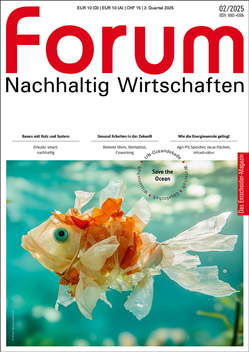
Save the Ocean
forum 02/2025 ist erschienen
- Regenerativ
- Coworkation
- Klimadiesel
- Kreislaufwirtschaft
Kaufen...
Abonnieren...
30
APR
2025
APR
2025
Franz Alt: Die Solare Weltrevolution - Aufbruch in eine neue Menschheitsepoche
In der Reihe "Mein Klima… in München"
80331 München und online
In der Reihe "Mein Klima… in München"
80331 München und online
07
MAI
2025
MAI
2025
MakerCamp Genossenschaften 2025
Genossenschaftliche Lösungen in Wirtschaft, Kommunen und Gesellschaft
65189 Wiesbaden
Genossenschaftliche Lösungen in Wirtschaft, Kommunen und Gesellschaft
65189 Wiesbaden
21
MAI
2025
MAI
2025
LVR-Kulturkonferenz 2025: Kultur. Nachhaltig. Wirtschaften.
Welchen Beitrag leistet Kultur zum wirtschaftlichen Wachstum?
47805 Krefeld
Welchen Beitrag leistet Kultur zum wirtschaftlichen Wachstum?
47805 Krefeld
Professionelle Klimabilanz, einfach selbst gemacht

Einfache Klimabilanzierung und glaubhafte Nachhaltigkeitskommunikation gemäß GHG-Protocol
Politik
 Gelassenheit und Seelenruhe
Gelassenheit und SeelenruheChristoph Quarch leistet - mit Blick auf Donald Trumps Regierungsantritt - philosophische Lebenshilfe
Jetzt auf forum:
Mehr Nachhaltigkeit, weniger Kosten
Mut und Machen – Tollwood Sommerfestival 2025, 19. Juni bis 20. Juli in München
Chocolate Scorecard: Die guten und schlechten Ostereier der Schokoladenindustrie
Die Region Klimaberg Katschberg setzt ein deutliches Zeichen für nachhaltigen Tourismus in den Alpen



